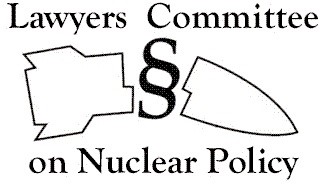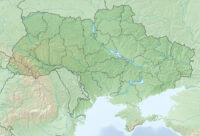We are witnessing a resurgence of interest in the application of international human rights law to one of the principal threats to the human future: nuclear weapons. A general comment issued by the UN Human Rights Committee in 2018 finds the threat or use of nuclear weapons to be incompatible with respect for the right to life. The Treaty on the Prohibition of Nuclear Weapons adopted a year earlier is suffused with a humanitarian perspective, protects the rights of victims of testing and use of nuclear arms, and cites human rights law and the principles of humanity in its preamble.
Lawyers Committee on Nuclear Policy (LCNP) twice brought together leading lawyers, law professors, and analysts to reflect on these developments, in December 2018 and in May 2019. In January, LCNP released Human Rights Versus Nuclear Weapons: New Dimensions, which collects papers based on the speakers’ remarks.
- Roger Clark of Rutgers Law, LCNP Executive Director Ariana Smith, LCNP President Emeritus Peter Weiss, and Dr. Daniel Rietiker of the University of Lausanne examine and reflect upon the significance and implications of the finding of the UN Human Rights Committee.
- Bonnie Docherty of the Harvard Law International Human Rights Clinic addresses human rights aspects of the Treaty on the Prohibition of Nuclear Weapons.
- Andrew Lichterman of Western States Legal Foundation explores how human rights discourse could be a terrain for making connections between disarmament movements and other movements for a more fair, democratic, and ecologically sustainable society.
This publication is highly recommended reading for anyone seeking to understand how a human rights approach can contribute to the abolition of nuclear weapons.
Also in January, Lawyers Committee on Nuclear Policy and Western States Legal Foundation made a submission to the UN Human Rights Committee concerning the nuclear weapons program of the Democratic People’s Republic of Korea (DPRK). The committee’s periodic review of the DPRK is now underway.
The submission begins:
“Article 6 of the International Covenant on Civil and Political Rights defines the right to life in its paragraph 1 in the following terms: “Every human being has the inherent right to life. This right shall be protected by law. No one shall be arbitrarily deprived of his life.” In 2018, in a general comment, the United Nations Human Rights Committee addressed nuclear weapons, finding among other things that the use or threat of use of nuclear weapons “is incompatible with respect for the right to life.” In this submission, Lawyers Committee on Nuclear Policy (LCNP) and Western States Legal Foundation (WSLF), drawing on the general comment, hold that the policy and practice of the Democratic People’s Republic of Korea (DPRK) in relation to nuclear weapons contravenes the right to life under the ICCPR in multiple ways. At the end, we suggest questions to be included in the list of issues.
LCNP and WSLF have previously submitted a comment to the Committee concerning the Russian Federation’s nuclear weapons policy and have also made a submission to the Human Rights Council concerning the nuclear weapons policy of the United States of America. We are fully aware that the geopolitical situation of the DPRK is far different than that of major powers whose projection of power worldwide relies in part on nuclear arms. In particular, the DPRK for decades, even before it acquired nuclear weapons, has faced possible US use of nuclear weapons in certain circumstances. In 2017, the United States and the DPRK each made unmistakable and belligerent threats of use of nuclear arms, with President Trump making reference to “fire and fury” and the DPRK referring to its “rockets’ visit to the entire U.S. mainland.” Nonetheless, international human rights law and other relevant international law apply universally, regardless of a country’s particular circumstances, and each country must comply with the law.”
The submission goes on to address threat and use of nuclear weapons; the obligations to negotiate nuclear disarmament, to refrain from nuclear testing, and to dismantle the nuclear stockpile; the obligations to afford adequate reparation to victims of nuclear testing and use and to remediate the environment; and the need to end the expenditure of resources on nuclear arms. It closes with suggested questions for the review.



